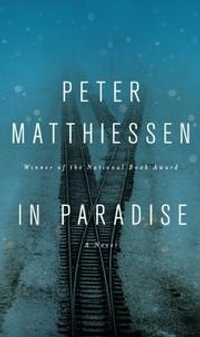Attempts by humans to surmount nature at its most expansive and inhospitable is an almost guaranteed home-run story arc. But Matthiessen (The Snow Leopard, etc.) uses a clinical, detached voice to narrate his epic treks to Antarctica, making what should be a gripping page-turner a bland yawn. It's not his fault that a wicked storm limited his journey to the White South, disrupting the natural apex of the trip's trajectory. But Matthiessen would have been more effective in conveying the magnitude of his experiences if he had used words—not latitude and longitude coordinates—to narrate the action. He vaguely compensates for his stoicism by liberally citing and quoting from his Antarctic forebears, especially Ernest Shackleton and Roald Amundsen. This historical context is appreciated, particularly after slogging through languorous descriptions of animals, objects and elements that lack personification (a necessary tool when making "nature" the subject, protagonist and plot line of a book). Statements like, "Birds call us into the moment," made by an associate of Matthiessen's (but equally indicative of Matthiessen's philosophy) are not evocative hallmarks of the Antarctic quest, one of the most complex, majestic and challenging journeys that exist. Although he succeeds in prioritizing nature over narrative arc, it remains frustrating that such an accomplished author would not, in his 27th book, find a way to liven up antiseptic observations of albatrosses and hurricanes with an expansive, emotive voice befitting the scope of his travels. 8-page color photo insert not seen by PW. (Sept.)


